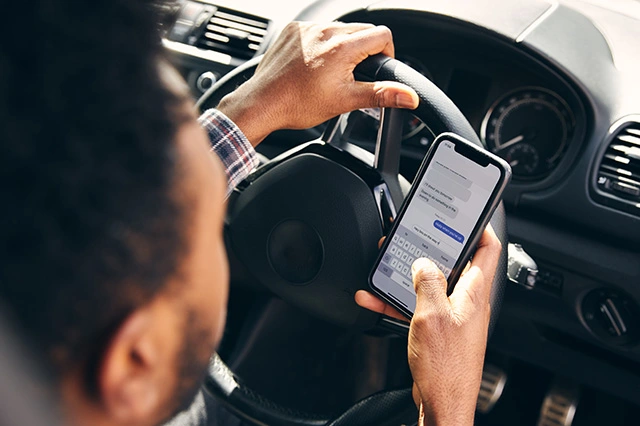Impound Insurance
Get your car back quickly when you compare impounded vehicle insurance

What is Impound Insurance?
Impound insurance, also commonly known as ‘seized vehicle insurance’ is a specific policy that allows you to retrieve your vehicle from an impound. It is crucial to have the correct insurance, as many standard policies may not cover the costs associated with vehicle impoundment.
A vehicle is often impounded for driving without insurance, illegally parking and for cars used for criminal or anti-social activities.
Should your car is impounded, you will need to follow a few steps that include.
- Proving you own the vehicle or registered keeper
- Obtain an impound policy for 30 days
- Pay the release fee
It is advisable to consider specialist impounded car insurance, as standard policies may not cover the retrieval of an impounded vehicle.
Impound insurance policies have a fixed duration of 30 days only. Once the policy expires, you will need to ensure you have a standard insurance policy in place.
How our process works
We’ve worked hard to refine our process and keep it as quick, easy and simple as possible for our customers.
How Does Impound Insurance Work?
Impound insurance works similarly to a standard car insurance policy, but it is designed specifically for drivers whose vehicles have been impounded. When you purchase a temporary car insurance policy, you are paying for coverage that will allow you to retrieve your impounded vehicle.
Having a car impounded can affect your insurance premiums, leading to higher rates or difficulties in obtaining coverage at renewal due to the increased risk perceived by providers.
Here’s what you need to do.
- Purchase impound insurance. You can compare and purchase impound insurance from a specialist broker.
- Provide proof of insurance. You will need to policy document to how the police and the impound.
- Pay impound fees. Cars that are impounded also incur additional fees such a towing costs and fines.
- Retrieve your vehicle. Once you have all the above, you will be able to retrieve your seized vehicle.
Vehicle Seizure and Impounding
Cars can often be seized for lack of insurance. If the vehicle is found to be uninsured, it will be seized immediately by the authorities. It is crucial to have impounded vehicle insurance to ensure a quick release of the vehicle and minimize any delays and costs associated with storage and recovery.
When you insure your vehicle, your insurer will add the details to a database known as the Motor Insurance Database (MID), which the police have real-time access to. Through systems like ANPR (Automatic Number Plate Recognition), they can instantly check if your vehicle is insured. If it is not, they have the right to seize and impound the vehicle unless you can provide proof of insurance.
There may be a delay in the notification to the MID when a driver first insures their car, which can take up to a week for the database to update. If the police stop you and find that your car has no insurance on record, you can explain that it is newly insured. The police can then contact your insurer directly to confirm this, or they can issue a HORT1, which requires the driver to present the insurance documents at a police station within a specified time frame. If the police are not satisfied with the validity of the insurance, they may immediately seize and impound the vehicle.
To have the vehicle released from impound, the proper procedures must be followed, including presenting proof of insurance and a valid driving licence.
Why Would A Vehicle Be Impounded?
Several agencies, including the police, local authorities, and the DVLA, have the authority to seize vehicles. A car can be impounded for a number of reasons, including:
- Recovery after being reported stolen
- Involvement in an accident
- Being illegally parked on roads or private property
- Blocking the road or causing a obstruction
- Being used for criminal or anti-social activities
- Lacking insurance coverage, which is particularly important for impounded cars
- Being parked on a public road without paying taxes
- Being parked on private land without paying taxes and not having a Statutory Off Road Notification (SORN)
- Being driven by a person without a valid licence or insurance coverage.
As a vehicle owner, it is crucial to understand the legal obligations, including the need for appropriate vehicle insurance while the vehicle is on public roads.
Impound Insurance and Car Tax
Impound insurance and car tax are two separate entities. If your car is impounded due to unpaid car tax, you will need to pay the surety fee and buy car tax within 15 days of the car’s release.
Alternatively, you can get or keep a SORN (Statutory Off Road Notification). It is essential to note that impound insurance does not cover car tax, and you will need to arrange for separate coverage. Ensuring you have both impound insurance and the necessary car tax or SORN will help you comply with legal requirements and avoid further complications.
The Impoundment Process
The impoundment process typically begins when a vehicle is seized by the authorities due to various reasons such as parking fines, traffic offenses, or other infractions. Once the vehicle is impounded, the owner will receive a notice letter with instructions on how to retrieve the vehicle. This notice will detail the steps required, including providing proof of insurance for the next 30 days. It is crucial to act promptly; if the owner fails to reclaim the vehicle or present the correct documents within 14 days, the vehicle may be disposed of. Ensuring you have the necessary documentation and understanding the process can help you retrieve your vehicle without unnecessary delays.
Who Needs Impound Insurance?
Anyone who has had their vehicle impounded and wishes to claim it back will require impound insurance. Temporary insurance, such as impound insurance, is a short-term policy lasting around 30 days, essential for legally retrieving an impounded vehicle and is different from standard car insurance policies.
Police seize vehicles for a wide range of reasons however the most common one is lack of insurance. This can be through either the individual not insuring the vehicle or by someone else using the vehicle that is not insured. A common example of this is a young individual taking their parents car to be stopped by police and it being impounded as the young individual is not insured.
If the car is uninsured full stop or was just driven uninsured by the driver, then the owner or registered keeper will require seized vehicle insurance with impounded car cover. After the 30 day term, you will need to source normal car insurance with an IN10 (the conviction code for driving without insurance). We can help you find convicted driver car insurance when the time is right.
Impound Insurance Coverage
Impound insurance coverage is a specialized type of insurance designed to cover impounded vehicles. This type of insurance provides a swift release of the vehicle, minimizing delays and inconveniences. Impound insurance ensures compliance with insurance requirements for impounded vehicles and offers a reliable solution for retrieving impounded vehicles. Typically, the coverage includes third-party-only cover, which is essential for meeting legal requirements. By securing impound insurance, you can ensure that your vehicle is covered and ready for release, allowing you to get back on the road as quickly as possible.
Choosing the Right Impound Insurance
Choosing the right impound insurance is crucial to ensure a smooth and hassle-free process. When selecting an impound insurance policy, consider the following factors:
- Check if the policy provides third-party-only cover: This is the minimum legal requirement and ensures your vehicle is covered.
- Ensure the policy lasts for 30 days: This duration gives you the freedom to decide what to do with your car once it’s recovered.
- Check the eligibility criteria of the insurer: Make sure you meet all the requirements to avoid any issues.
- Pay close attention to the Proposer’s Declaration: Understanding this declaration is vital as it outlines your responsibilities and the terms of the policy.
- Consider the cost of the policy and the fees associated with impounding: Balancing the cost of the insurance with the impound fees can help you manage your expenses effectively.
Frequently Asked Questions
Related News
Understanding the Punishment for Dangerous Driving: Fines and Penalties Explained
Dangerous driving penalties are severe and can include fines, driving bans, and prison sentences.This article explains the punishment for dangerous driving, considering factors like previous convictions and aggravating circumstances. Learn what to expect if charged
The Most Repeated Driving Offences
Driving offences are a significant concern in the UK, impacting road safety and resulting in both fines and legal consequences. While many motorists adhere to traffic laws, a notable portion of drivers frequently repeat
Convictions for Driving Offenses Reach New Highs
Convictions for driving offenses across the United Kingdom have reached unprecedented levels, according to recent data released by the Ministry of Justice. The statistics, which reflect convictions from 2023, indicate a sharp rise in




